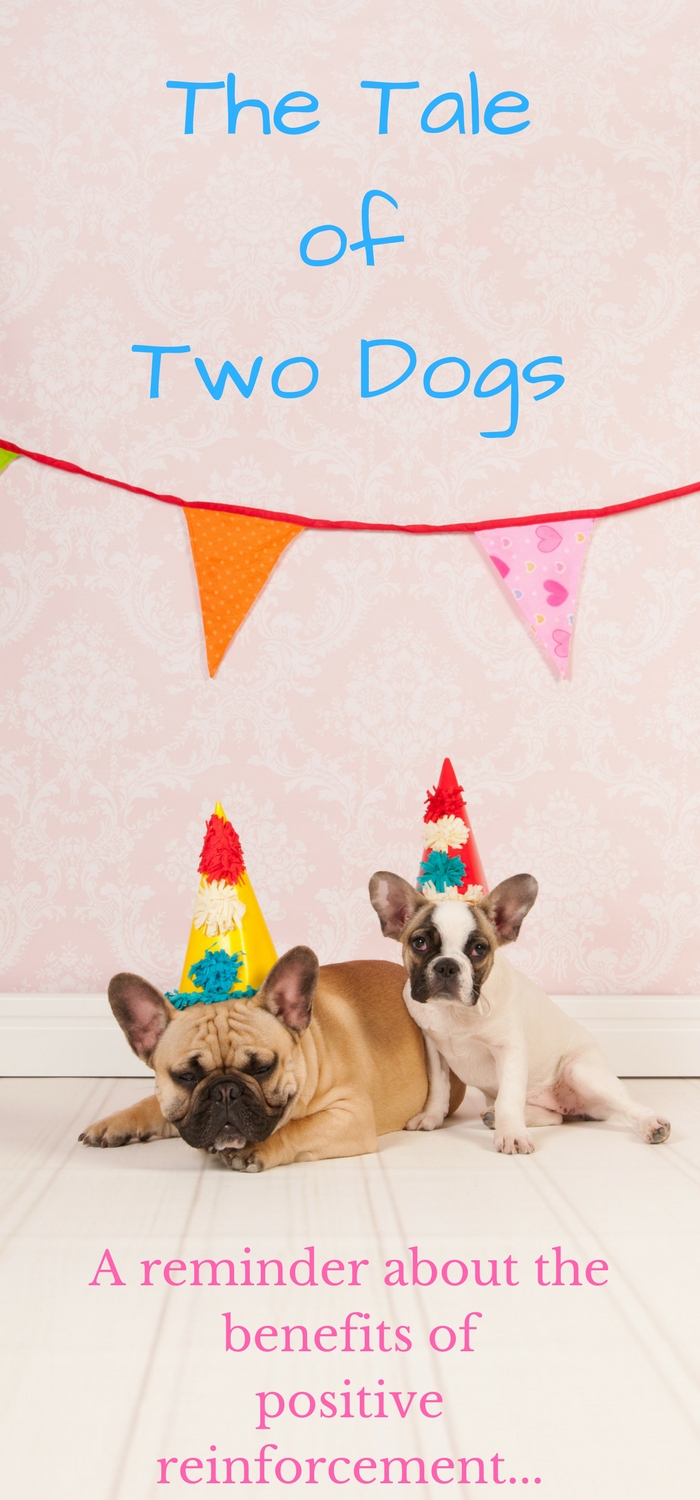“A reminder about the benefits of positive reinforcement…”
As a first time dog owner, he failed. He would call “Ginger!” but Ginger wouldn’t respond. She continued wandering and sniffing bushes, as dogs are wont to do, and only returned when she wanted to, which was neither soon nore quick enough to suit him. And when she did come back, he was furious. He would grab her by the collar, shake her violently and yell, “BAD dog! You come when I call!” But she gradually became even less inclined to respond and he grew even more frustrated, until one day he left the dog on a friends farm where she could run free.
Enter dog number two: Dusty. By now our friend, the misguided dog lover, had matured such that he remained calm even when Dusty ignored his commands. He just waited until Dusty did respond, then he lavished praise and affection upon her.
“He would hug her and pat her and say, “GOOD dog, Dusty!” Thus Dusty quickly learned that being obedient was a pleasant experience, and she became an exceptionally happy dog-owner.”
The difference? It wasn’t the dogs. It was the way they were treated: One negatively, one positively. And if positive reinforcement worked with Dusty, wouldn’t it be equally effective with people?
Behavioral scientists answer that question with an emphatic yes, saying that when a person does something and is immediately rewarded, he or she will tend to do it again— consciously or unconsciously seeking further positive reinforcement.
You can test this theory by asking yourself how you feel when someone tells you…
- “Your report to the committee was excellent. Thanks for being so complete, yet so concise.”
- “Your office is a haven for the confused. It’s always so neat and well-organized.”
- “Your quick action saved that account. We’re grateful to you.”
Naturally, you feel pleased, proud. You feel more commitment to those who recognized and rewarded you for your effort, and your inclination is to work even harder. That’s nothing profound, of course.You’ve known about the benefits of positive reinforcement all your life. But now that you’ve been reminded of them…

-
Here’s what you can do:
- Look for opportunities to give positive reinforcement. If a loved one doesn’t keep in touch as often as you’d like, don’t complain. Instead, wait until he or she does call, then say, “It’s great to hear from you! Your phone calls brighten my day!”
- Next time you watch a football game, notice how teammates pat, hug and praise each other when they perform well. Likewise, whenever those on your “team” perform well, give them the positive reinforcement they deserve.
- Timing is important. Be quick about it! Saying to your mate, “You looked wonderful last Thursday night,” is of no value.
- And don’t forget yourself. Actress Ruth Gordon said, “An actor has to have compliments and positive reinforcement. If I go long enough without getting a compliment, I compliment myself and that’s just as good, because at least then I know it’s sincere!”
-Joel Weldon

